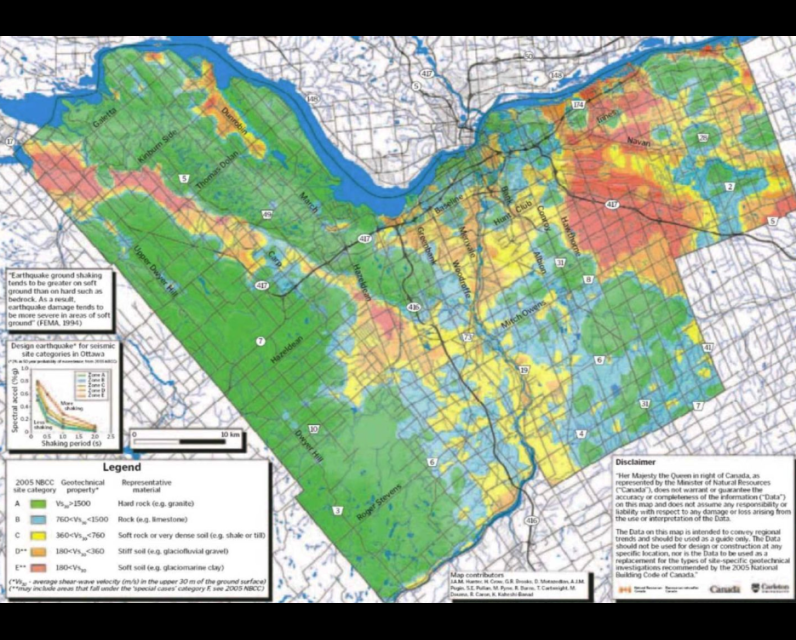Unpublished Opinions
Daniel Buckles is a resident of Kitchissippi Ward, and co-recipient of the 2020 Conservation Award from the Ottawa Field Naturalist Club for work to conserve Heritage Bur Oaks in the Champlain Park neighbourhood.
Buckles: Delay approval of Ottawa's Official Plan until municipal election

Many community groups are dismayed at how impenetrable the draft proposal has become, and how far it is from the succinct, high-level document originally expected.
Author Daniel Buckles is a resident of Kitchissippi ward.
On Friday, March 12, a door into Ottawa’s new Official Plan closed. That was the formal deadline for comments on the draft tabled by city staff in November, 2020, a deadline extended by a month at the request of community organizations. By the fall of 2021, a new draft will come before council committees and make its way to council for what is intended to be a final vote.
Planning staff must be relieved, as they can turn their focus inwards and get on with it. Councillors who support the directions and key elements of the draft Official Plan must also be pleased. Fundamental decisions such as the continuing tilt towards urban sprawl, the gifting of development rights to commercial interests, along with tepid moves on transportation challenges, the climate crisis and agricultural land use have been settled the way the mayor and the majority on council would like it – or at least they hope it is.
The impact, however, on Ottawa’s civil society is much less tidy. Over the last month alone, dozens of community-based groups, concerned that the city is not going far and fast enough on climate and social justice issues, have been meeting, strategizing and writing to staff and councillors. Many are deeply disturbed by the content of the plan. Most, including the Federation of Citizens’ Associations of Ottawa representing community associations, have called on the city to postpone approval of the Official Plan until after the next municipal election.
Their view is that the plan, which will set the course for land use in Ottawa to 2046, should be put to voters by would-be councillors in the October 2022 municipal elections. The Province of Ontario, which mandates municipal Official Plans, has no requirement that the Plan be finalized under the current term of council, so a delay in approvals faces no legal challenge.
Many community groups have expressed dismay at how impenetrable the draft plan has become, and how far it is from the succinct, high-level planning document expected when the process was launched in April, 2019. It is now 264 pages, with 22 schedules and 10 annexes; a second volume revamped all secondary plans, without consultation. According to community groups and representatives of the building industry alike, the draft is full of contradictions and ambiguities that make it impractical as a planning document. Worse, it includes few targets and makes almost no plans to monitor and measure progress on its goals. To be fair, some of these contradictions reflect efforts by staff to “balance” competing interests.
Concerns about the consultation process, voiced repeatedly, illustrate why the general public does not trust governments on consultation. Despite numerous open events (nearly 100 by the city’s account), few citizens feel heard and many feel misled. One promising process I was actively involved with was “the Ambassadors Group,” comprised mainly of social-equity-seeking organizations focused on poverty, immigration and gender issues. It was meant to function as the city’s “portal” to vulnerable and marginalized groups. But treating organizational representatives as “ambassadors” for the city was a disingenuous idea. As one representative said during the first meeting, “It sounds like you want us to do your job for you.” Attendance plummeted after that, leaving the most vulnerable and marginalized voices in the city largely out of the loop. Regrettably, the city’s consultation has put on a show of listening without actually being moved, no matter the weight of public opinion.
William Blake’s 18th-century metaphor on the doors of perception reflects humanity’s limited perception of the reality around them: “For man has closed himself up, till he sees all things through narrow chinks of his cavern.” The city’s draft Official Plan is mired in this murky space. It seems bound to alienate and, in the end, it risks defeating the very purpose of this planning exercise. Previous intensification in Ottawa left many residents unhappy because they felt powerless and suffered all the negatives without the benefits. Now, just as the conversation is heating up, the door for planning with people rather than for them has closed.
Could the crucible of an election cycle, where truth is more likely to be spoken, open the doors of perception?



Comments
Be the first to comment